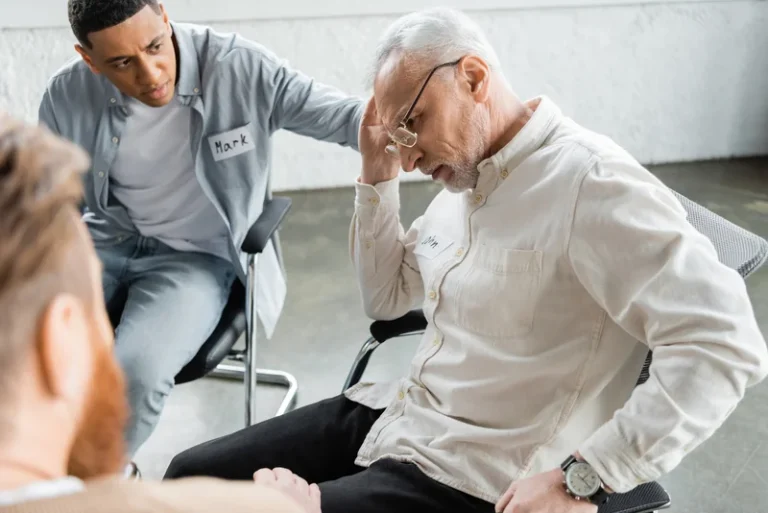
- Uncategorized
- July 22, 2021
- No Comments
Does Alcohol Thin Your Blood? Risks of Alcohol and Blood Thinners

The effects of alcohol consumption on blood pressure and heart rate can last up to 13 hours after drinking, and its effects on heart rate can last up to 24 hours after drinking. Another reason for the increase in blood pressure and heart rate is how alcohol affects hormones, specifically the stress hormone known as cortisol. Cortisol is released when a person feels physical or psychological stress so that they are is alcohol a blood thinner prepared for a threat to their well-being.

Side Effects
Alcohol use should be limited while on Plavix, and specific cases should be discussed with a doctor. The blood-thinning effect of Lovenox is enhanced while using alcohol, increasing the risk of bleeding. You should check with your doctor before mixing Lovenox and alcohol.
Can someone drink alcohol instead of taking a blood thinner?
Yet because of this effect, drinking alcohol could potentially increase your risk for the bleeding type of strokes — especially when you drink it in large quantities. Alcohol use — especially in excess — can also pose other risks to your health. People taking blood thinners with reduced liver function may accumulate more medication in their bloodstream. Increasing the level of blood thinners in the body can lead to an increased risk of bleeding.

Taking herbal supplements
Each specific drug has a list of side effects that can range from nausea, constipation, and headache, to shortness of breath and severe allergic reaction. Anticoagulant medications target the coagulation cascade, whereas antiplatelet medications target platelet activation. American Addiction Centers (AAC) is committed to delivering original, truthful, accurate, unbiased, and medically current information. We strive to create content that is clear, concise, and easy to understand. Looking to help someone with their alcohol addiction, we have provided some more information for those seeking guidance. A common question many people ask is can Xarelto and alcohol be used together?
Possible side effects of blood thinners

This helps prevent blood clots from lodging in the heart, causing a heart attack; in the brain, causing a stroke; or in the lungs, causing a pulmonary embolism. Drinking alcohol in moderation may have a protective effect on your blood vessels. Some research finds that alcohol increases levels of high-density lipoproteins (HDL, aka “good cholesterol”). This healthy type of cholesterol helps protect your arteries and prevent the blood clots that can lead to heart attacks and strokes. Blood thinners are anticoagulation medications that treat and prevent blood clots. Blood clots are semi-solid clumps of red blood cells, platelets, fibrin (a type of protein), and other proteins.
Your addiction does not have to define who you are.

Alcohol can also affect the action of platelets, which are the components of the blood that form clots. A 2016 review suggests that significant daily alcohol consumption increases the activity of platelets. Therefore, people should always check with a doctor or pharmacist whether it is safe to drink alcohol with a particular blood thinner. In general, all anticoagulation medications work by either blocking or inactivating part of the system that forms blood clots.
- They are commonly used in the treatment and prevention of stroke and heart attacks.
- If it blocks the blood flow to your brain, it can cause a stroke.
- If you’re already pregnant, double-check with your doctor to make sure the blood thinner you’re on won’t harm the baby.
- However, more research is necessary to determine whether alcohol use is directly responsible for these possible heart benefits.
- Researchers also found decreased rates of coronary artery disease (CAD) and non-fatal stroke among people who drank alcohol compared to those who didn’t.
- Blood thinners are medicines that help keep you from forming blood clots as easily, which keeps your blood flowing smoothly through your veins and arteries.
- Green tea also contains some vitamin K, so it’s best to choose another option, like black tea, which doesn’t interact with a blood thinner.
HIT has a very high rate of causing severe or permanent complications. Because of that, platelet level monitoring is very important for anyone who’s receiving unfractionated or low-molecular-weight heparin. If a healthcare provider suspects HIT, they will immediately stop giving you heparin (in either of those two forms) and switch to another medication. Thrombin inhibitors work by attaching to thrombin, keeping it from assisting clotting processes. They are often used as alternatives to heparin and its variants, especially to prevent the formation of clots after certain medical procedures.
This physiological response primes a person to be alert and ready to act. Alcohol can cause an increased release of cortisol and, in turn, higher blood pressure and a faster heartbeat. Short-term effects occur because of how alcohol impacts receptors in the blood. Specific blood vessels near the heart rely on receptors to keep blood pressure at a healthy level. When alcohol is in the blood, these receptors do not function as they should. Other medicines and supplements, including over-the-counter ones, can interfere with these drugs.
Blood thinners are a category of medication that helps prevent the formation of blood clots within the bloodstream, a process known as hemostasis. Depending on the location in the body and whether the clot blocks blood vessels, a thrombosis can be life threatening. Despite their name, blood thinners (also called anticoagulants) don’t actually thin your blood.

People taking blood thinners are cautioned against drinking alcohol, but research has found that it is generally safe when done so infrequently and in moderation. Speak to a healthcare provider before drinking alcohol while on blood thinners. For example, a blood clot can form elsewhere in the body and travel to the heart, lungs, or brain.
